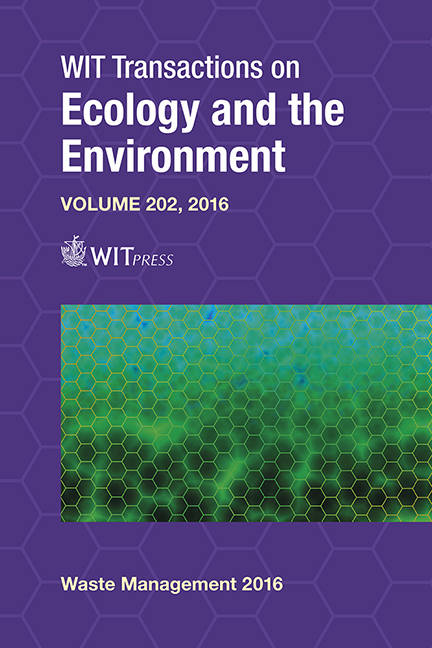Recycling, Waste Management And Urban Vegetable Gardens
Price
Free (open access)
Transaction
Volume
202
Pages
12
Page Range
61 - 72
Published
2016
Size
927 kb
Paper DOI
10.2495/WM160071
Copyright
WIT Press
Author(s)
A. Sgobbo
Abstract
Waste management is an issue where several technical, technological but also social and cultural factors contribute to make it complex, while the concentration of waste production in big cities mainly gives it an urban and metropolitan dimension. Remarkable difficulties can be found in the scarce motivation of the citizens to actively participate in the process of trash separation and collection as well as in the dislike they feel towards the systems and facilities dedicated to waste processing. This paper reports on research in this subject carried out at the University of Naples thanks to a scientific cooperation agreement with the Dutch multinational company Còrio. The verified thesis showed the existence of a close relationship between direct and tangible motivations and the users’ attitude to trash separation. The results were significantly above those expected to be obtained through coercive methods or, even worse, through the promise of an abstract general benefit. The above-mentioned research also brought the implementation of a prototype made up of a playful but at the same time educational urban vegetable garden of around 800 sq. m with a virtuous management system of organic household waste. The experiment, named Orto in Campania, showed the real effectiveness of the proposed solutions with a strong motivational value for the citizens’ involvement but also the mutability of it both in well-established and in new urban areas. The success was so huge that this installation, intended as temporary, is still on course after more than five years.
Keywords
reduce, reuse, recycle and recovery (4Rs)





